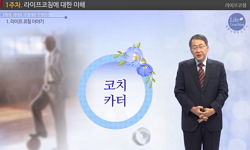Objectives This study investigates the mediating effects of sleep quality and depression on the relationship between post-traumatic stress disorder (PTSD) symptom severity and inhibitory control deficit among psychiatric patients. Methods A total...
http://chineseinput.net/에서 pinyin(병음)방식으로 중국어를 변환할 수 있습니다.
변환된 중국어를 복사하여 사용하시면 됩니다.
- 中文 을 입력하시려면 zhongwen을 입력하시고 space를누르시면됩니다.
- 北京 을 입력하시려면 beijing을 입력하시고 space를 누르시면 됩니다.
https://www.riss.kr/link?id=A109219599
- 저자
- 발행기관
- 학술지명
- 권호사항
-
발행연도
2024
-
작성언어
-
- 주제어
-
KDC
510
-
등재정보
KCI등재
-
자료형태
학술저널
- 발행기관 URL
-
수록면
190-197(8쪽)
- DOI식별코드
- 제공처
-
0
상세조회 -
0
다운로드
부가정보
다국어 초록 (Multilingual Abstract)
Methods A total of 189 psychiatric patients completed questionnaires on PTSD symptom se-verity by using the Korean version of the Impact of Event Scale-Revised; they answered ques-tions on sleep quality based on the Korean version of the Pittsburgh Sleep Quality Index, and answered questions on depression based on the Korean-Beck Depression Inventory-II. They were also tested to measure inhibitory control deficit by using the Stroop Task. Regression analy-sis and the bootstrap sampling method were conducted for data analyses.
Results The major findings of this study are as follows. First, PTSD symptom severity predicted inhibitory control deficit. Secondly, depression significantly mediated the relationship between PTSD symptom severity and inhibitory control deficit, but did not affect sleep quality. Lastly, the sequential mediating effect of sleep quality and depression was significant in the relationship be-tween PTSD symptom severity and inhibitory control deficit.
Conclusion These results suggest that sleep quality and depression should be considered in the pathway from PTSD symptom severity leading to inhibitory control deficit. Therefore, addressing sleep quality and depression in PTSD intervention may help prevent the development of inhibito-ry control deficit.
Objectives This study investigates the mediating effects of sleep quality and depression on the relationship between post-traumatic stress disorder (PTSD) symptom severity and inhibitory control deficit among psychiatric patients.
Methods A total of 189 psychiatric patients completed questionnaires on PTSD symptom se-verity by using the Korean version of the Impact of Event Scale-Revised; they answered ques-tions on sleep quality based on the Korean version of the Pittsburgh Sleep Quality Index, and answered questions on depression based on the Korean-Beck Depression Inventory-II. They were also tested to measure inhibitory control deficit by using the Stroop Task. Regression analy-sis and the bootstrap sampling method were conducted for data analyses.
Results The major findings of this study are as follows. First, PTSD symptom severity predicted inhibitory control deficit. Secondly, depression significantly mediated the relationship between PTSD symptom severity and inhibitory control deficit, but did not affect sleep quality. Lastly, the sequential mediating effect of sleep quality and depression was significant in the relationship be-tween PTSD symptom severity and inhibitory control deficit.
Conclusion These results suggest that sleep quality and depression should be considered in the pathway from PTSD symptom severity leading to inhibitory control deficit. Therefore, addressing sleep quality and depression in PTSD intervention may help prevent the development of inhibito-ry control deficit.
동일학술지(권/호) 다른 논문
-
대규모 언어 모델에 기반한 정신치료: 마음이론 측면에서의 서술적 고찰
- 대한신경정신의학회
- 온윤서(Yoonseo On)
- 2024
- KCI등재
-
COVID-19 격리병동 입퇴원 환자의 외상후 스트레스 장애 증상 및 관련 요인
- 대한신경정신의학회
- 김민정(Minjung Kim)
- 2024
- KCI등재
-
성인 주의력결핍과잉행동장애 증상과 문제성/병적 도박 간의 관련성
- 대한신경정신의학회
- 이원석(Wonseok Lee)
- 2024
- KCI등재
-
대한민국 군간부를 위한 단축 형식 우울증 선별 설문지 개발
- 대한신경정신의학회
- 최승연(Seung-Yeon Choi)
- 2024
- KCI등재





 KCI
KCI 스콜라
스콜라





